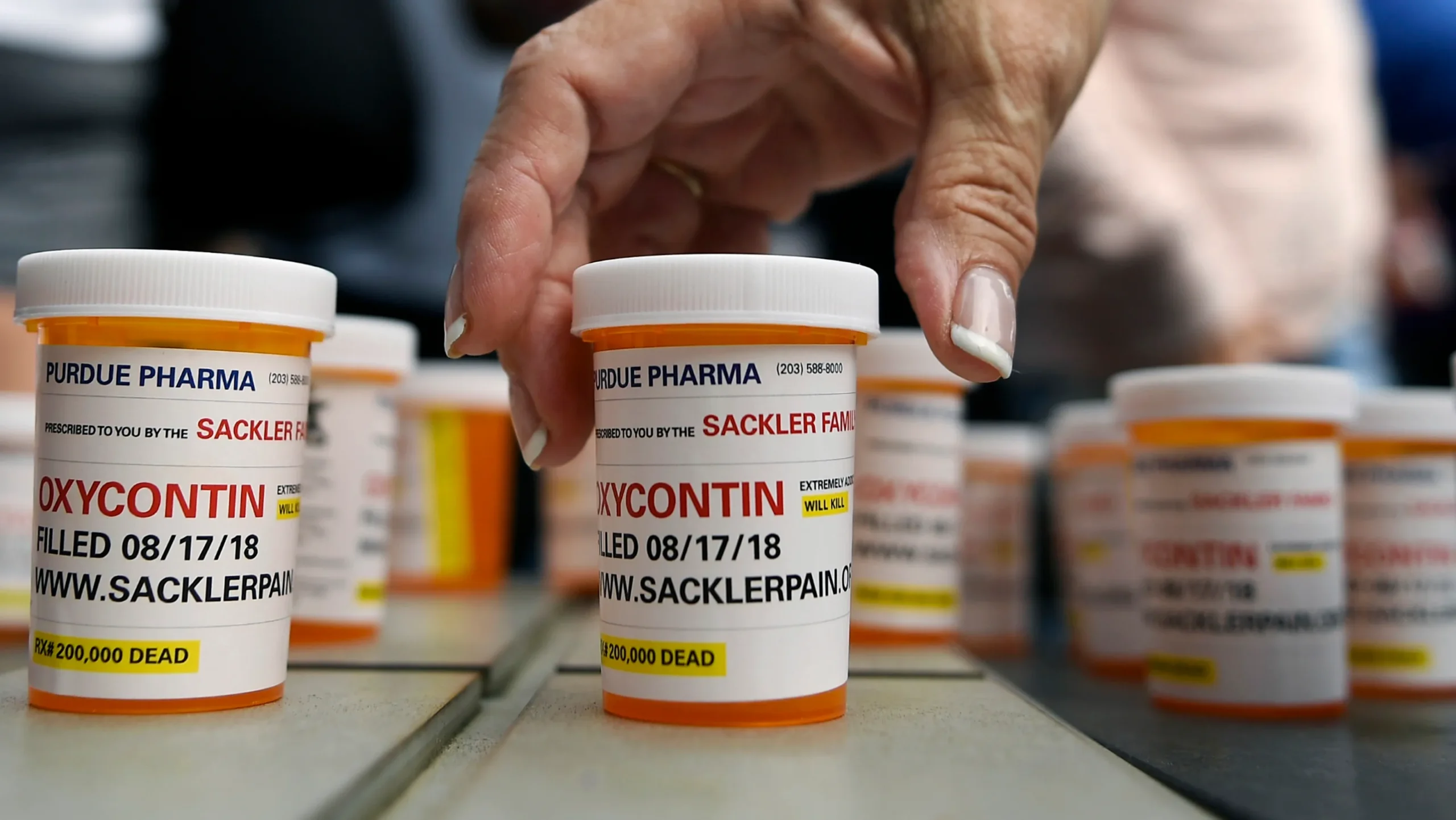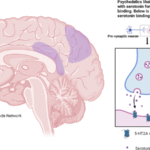Have you ever wondered why addiction seems to affect certain families more than others? Maybe you’ve noticed that alcoholism appears in multiple generations of a family, or that several siblings struggle with different types of substance abuse. You’re not imagining it – there’s real science behind why addiction tends to “run in families,” and understanding this can be incredibly empowering for both individuals and families dealing with these challenges.
The Simple Truth: Genetics Play a Major Role
Let’s start with the numbers that might surprise you. About half of your risk for developing an addiction comes from your genes. That means if your parent, sibling, or close relative has struggled with addiction, you’re 4 to 8 times more likely to face similar challenges yourself.
But here’s what’s important to understand: having genetic risk doesn’t mean you’re doomed to addiction. Think of it like having a family history of heart disease or diabetes – it means you need to be more careful and aware, but it doesn’t guarantee you’ll develop the condition.
Why Some People Get Hooked While Others Don’t
You’ve probably seen it happen – two people try the same drug, but only one becomes addicted. This isn’t about willpower or moral character; it’s largely about biology. Research shows that genetics account for 40-60% of addiction risk, regardless of the substance.
The rest comes down to environmental factors like:
- Childhood trauma or abuse
- Early exposure to substances (the younger you start, the higher your risk)
- Stress levels and coping mechanisms
- Mental health conditions like depression, anxiety, or ADHD
- Social environment and peer influences
Your Brain’s Reward System: The Genetic Connection
To understand how genetics influence addiction, we need to talk about your brain’s reward system. Your brain produces a chemical called dopamine, which acts like your personal “feel-good” hormone. When you eat something delicious, accomplish a goal, or experience something pleasurable, dopamine is released.
Some people are born with genetic variations that affect how much dopamine their brains produce or how well they respond to it. If you naturally have lower dopamine levels or fewer dopamine receptors, you might be more likely to seek out substances that artificially boost these feel-good chemicals.
It’s like some people are born with a car that has a smaller gas tank – they need to fill up more often to feel satisfied.
The Most Important Genes in Addiction
The Alcohol Processing Genes
One of the strongest genetic protections against alcoholism comes from genes that control how quickly your body breaks down alcohol. Some people, particularly those of Asian descent, carry genetic variants that cause alcohol to be processed so quickly that they experience unpleasant reactions like flushing, nausea, and rapid heartbeat.
This genetic “early warning system” can reduce the risk of alcohol addiction by more than 50%. It’s nature’s way of saying “this isn’t good for you” before addiction can develop.
The Smoking Genes
Multiple genes affect nicotine addiction, with the most important ones controlling how nicotine receptors work in your brain. People with certain variants in these genes may find cigarettes more rewarding or have a harder time quitting. This helps explain why some people can smoke occasionally at parties while others become daily smokers after just a few cigarettes (NIH).
The Pain Medication Genes
Genetic variants in opioid receptors affect how people respond to prescription pain medications. Some people may find these medications more rewarding, while others may need higher doses for pain relief, both of which can increase addiction risk.
It’s Not Just About the Genes You’re Born With
Here’s where things get really interesting: your environment can actually change how your genes work. This field is called epigenetics, and it shows that experiences like trauma, stress, or even drug use can alter gene activity in ways that get passed down to your children.
For example, if someone uses cocaine repeatedly, it can change which genes are turned on or off in their brain’s reward circuits. Some of these changes can even affect their future children, making them more vulnerable to addiction.
This means that addiction risk can be inherited not just through DNA, but through environmental effects on gene activity.
Breaking the Cycle: What Families Can Do
Understanding genetic risk isn’t about accepting defeat – it’s about taking smart action. Here are practical steps families can take:
Early Awareness and Education
If addiction runs in your family, having honest conversations about genetic risk can be life-saving. Research shows that when college students learned about their potential genetic risk for alcoholism, most said they would drink less and take preventive steps.
Genetic Testing: A New Tool
Genetic testing for addiction risk is now available through tests like the Genetic Addiction Risk Score (GARS). This test looks at 10 genes related to addiction and can help families understand their risk levels.
While genetic testing isn’t perfect, it can be valuable for reducing guilt and denial, guiding treatment decisions, and helping families understand that addiction is a medical condition, not a moral failing.
Environmental Protection
Even if you carry high-risk genes, living in a “protective environment” can prevent addiction from developing.
This means:
- Avoiding early exposure to substances
- Learning healthy stress management techniques
- Getting treatment for mental health conditions
- Building strong social support networks
- Being extra cautious with potentially addictive medications
The Family Connection Beyond Genes
Growing up in a household affected by addiction creates additional risks beyond genetics. Children in these environments often experience:
- Higher levels of stress, anxiety, and trauma
- Learned behaviors around substance use
- Emotional coping patterns that may lead to self-medication
Children are like “emotional antennas” – they pick up on the chaos and may later seek comfort in substances. This is why breaking generational cycles requires addressing both genetic and environmental factors.
Hope and Recovery: Genetics Isn’t Destiny
Here’s the most important message: regardless of your genetic risk, recovery is always possible. Addiction may be influenced by genetics, but it’s also highly treatable.
Understanding your genetic risk can actually improve treatment outcomes by:
- Helping choose the most effective medications
- Guiding decisions about treatment intensity
- Reducing shame and self-blame
- Motivating family members to seek help early
Personalized Treatment: The Future is Here
Genetic information is already being used to personalize addiction treatment.
For example:
- People with certain genetic variants respond better to specific medications
- Genetic testing can predict which individuals might need higher doses or different drugs
- Family genetic patterns can help identify who might benefit from more intensive prevention efforts
What This Means for You and Your Family
If addiction runs in your family, here’s what you need to know:
- You’re not powerless – genetic risk is just one factor among many
- Knowledge is power – understanding your risk helps you make informed decisions
- Prevention works – avoiding early substance use dramatically reduces risk
- Treatment is effective – genetic information can actually improve treatment outcomes
- Breaking cycles is possible – many families successfully overcome generational addiction patterns
Moving Forward with Understanding
Addiction isn’t about weak willpower or bad character – it’s a complex medical condition influenced by genetics, environment, and personal history. By understanding the genetic components, families can move from shame and blame to informed action and hope.
The science is clear: while genetics load the gun, environment pulls the trigger. This means that even people with high genetic risk can live healthy, addiction-free lives with the right knowledge, support, and prevention strategies.
Whether you’re someone concerned about your own risk, a parent worried about your children, or a family member trying to understand a loved one’s addiction, remember that genetics explains vulnerability – it doesn’t determine destiny. With awareness, support, and proper care, the cycle of addiction can be broken, and recovery is always within reach.








